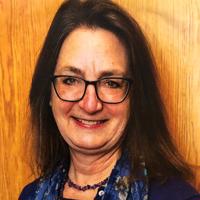Therapeutic Singing: Understanding Effective Vocal Health Practices for Music Therapists
Tuesday 9th April 2024, 1:00 PM - 2:00 PM (London Time)
Music therapy is a well-established health practice throughout the United Kingdom. As the British Association for Music Therapy (www.bamt.org) explains: 'Music therapists draw upon the innate qualities of music to support people of all ages and abilities and at all stages of life; from helping newborn babies develop healthy bonds with their parents, to offering vital, sensitive and compassionate palliative care at the end of life'. Graduate training programmes in music therapy are included in a number of prominent universities in the UK and worldwide.
The voice is considered the therapeutic instrument most used in music therapy practice. How is singing in music therapy unique and different from other types of singing? Music therapists across settings and models of practice use their voice for speaking, singing and specific voice-based interventions. But because music therapy is built on the individual client/therapist relationship, the therapist sometimes shouts, or whispers, or produces sounds outside of a comfortable pitch or dynamic range. They need to be prepared to sing in all styles and genres and be competent in musics of many cultures. They frequently sing while accompanying themselves on guitar, piano or percussion. Therapeutic singing requires the music therapist to engage fully in the musical life of the client, and that can be vocally demanding.
Because singing is so prevalent, effective and healthy voice practices have often been assumed rather than taught. Recent research has shown that music therapists are not always fully prepared to maintain vocal health, given the extensive voice use expected in clinical practice. Studies point to significant negative consequences for music therapists due to challenges in vocal health.
This session will share ways of understanding the voice and therapeutic singing and examine proactive ways in which voice educators can support music therapists to promote vocal health. The presenter will give an overview of 2021 research that analysed the ways music therapists used their singing voices clinically, which included (1) foundational vocal skills, (2) vocal engagement, and (3) authenticity.
Demonstrations of these dimensions will be presented along with implications for the education and training of music therapy students. The presenter will share thoughts on ways in which music therapists and voice educators can collaborate to foster better vocal health specific to the unique practice of therapeutic singing.
Elizabeth K. Schwartz
Elizabeth K. Schwartz MA, LCAT, MT-BC (New York, United States) spent her music therapy clinical career working in early childhood music therapy and school-based music therapy practice. She frequently presents on music development, music-centred practice and the use of the voice in music therapy.
Sorry, this is an archived short course...
We have plenty of upcoming short courses coming soon. See details of some of them below or look at the full list of short courses.

Wednesday 4th March 2026
1:00 PM - 2:00 PM
Wednesday 11th March 2026
1:00 PM - 2:00 PM
Wednesday 18th March 2026
1:00 PM - 2:00 PM
Wednesday 25th March 2026
1:00 PM - 2:00 PM
Wednesday 1st April 2026
1:00 PM - 2:00 PM
Wednesday 8th April 2026
1:00 PM - 2:00 PM
(London Time)
Learn to Coach RP and SSBE – a Certificate in Accent Coaching

Louisa Morgan
This six-week course is an opportunity to learn about both Received Pronunciation and Standard Southern British English. Rather than a course in learning how to speak RP/SSBE (there are many brilliant available courses for this already), this course is about learning how to coach it.

Thursday 5th March 2026
1:00 PM - 2:30 PM
Thursday 12th March 2026
1:00 PM - 2:30 PM
(London Time)
Acting Emotion: Perspectives from the Masters

Louisa Morgan
Stanislavski said, “our artistic emotions are, at first, as shy as wild animals and they hide in the depths of our souls.” Michael Chekhov said, our bodies should be like a “sensitive membrane, a kind of receiver and conveyor of the subtlest images, feelings, emotions and will impulses.” And Meisner said we should be “living truthfully under imaginary circumstances.” Join Louisa Morgan in this 2-part course as she explores a range of well-known acting practitioners to investigate what they believed (or believe) about emotion and how they approached it in their work. She'll compare their work to see where they align and where they diverge.


Tuesday 10th March 2026
3:00 PM - 5:00 PM
(London Time)
Living truthfully in the present moment: An introduction to the Meisner Technique!

Abigail Sugden
Sanford Meisner believed that acting is living truthfully under imaginary circumstances. Rooted in behavioural aspects of acting practice, the Meisner Technique is often associated with encouraging actors to live truthfully in the present moment. Aimed at those working within the field of acting, this 2-hour session with Abigail Sugden will focus on the work of Sanford Meisner, introducing the core principles of his technique and discussing the possible benefits to performers.
